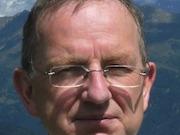Science for grown-ups

“Don’t ask me, I never got on with science at school” – such a common plea whenever scientific issues crop up in conversation. People who might happily offer an opinion on a novel or a social issue, stuck when it comes to science. As a former science teacher I understand why this is so: for the majority of adults formal science education simply didn’t work.
Despite this, it’s always impressed me just how strongly natural curiosity persists through into adulthood. This paradox led me to explore whether a way into science could be found for adults that draws on their curiosity rather than a formal syllabus. The humanities department at the Mary Ward Centre gave me the chance to test out whether such an approach might work for people with little background in the subject. Fourteen years later, those groups that began at Mary Ward are still going strong, albeit in the more informal setting of a wine bar.
Freeing both teacher and taught from the constraint of exam syllabuses has provided interesting insights into the appeal of science for people other than the career-bound. The experimental approach turns upside down many of the conventions of science teaching to which I had accommodated as a college teacher.
The first step is helping learners overcome the negative feelings many of them are left with from their experiences at school. The humiliation and frustration they regularly report centres on the constant diet of facts and formulae they were required to accept on topics that rarely related to their lives. A fresh way of perceiving science is offered, based on self-expression and discussion, interleaved with scientific explanation.
By helping participants feel safe about revealing their thoughts, they begin to venture questions and observations they always wanted to ask, drawn from everyday experience. It may be the weather or the tides or their child’s health or the car; or it may be more abstract: the meaning of light or of culture in primate society. The topics chosen invariably span several scientific disciplines. Discussion about sunlight for example leads into the physics of waves, chemistry of colour, biology of vision and psychology of perception.
The implications for pedagogy are obvious. No teacher is on top of this entire range. The tutor’s initial responsibility is to stimulate contributions from experience and encourage the flow of discussion and debate between participants. Only when these are exhausted does the teacher try to identify the underlying concepts that are in play: the structure of molecules, nature of genes or geography of the brain for example. On occasions the detailed knowledge required may be available on-the-spot, from the tutor, a tablet or sometimes a participant. On other occasions specialised knowledge comes later, after exploration at home, and is brought to the next session. The teacher’s key roles are to create the safe environment, encourage peer discussion, identify key underlying concepts and select reliable external sources of information, largely via the internet.
The implications for the curriculum are as radical as for the pedagogy. The path of discussion, the sequence of questions and observations, rarely falls within a conventionally defined scientific topic area, let alone, a single discipline. A discussion that once began with a child’s cut knee led into the anatomy of the blood system, the chemistry of haemoglobin and the physics of colour. An enquiry about why violence persists moved through sociology, psychology, primate behaviour and evolutionary theory.
So what do the punters ultimately gain from such a process, once their questions have been posed, discussion has taken place and underlying concepts introduced? According to the participants themselves it’s their confidence about science that’s the winner. They feel better able to engage in science conversations and to make sense of books, articles and TV documentaries. The majority of participants are women and they realise that sometimes the bluster people might display about technical matters is really paper thin. In a classic example, a participant once interrupted the flow to say: “Andrew, whenever you mention the word “charge” in connection with electricity you’ve lost me. What on earth does it actually mean?” By grasping the abstract concept after long and deep discussion in the group she came to realise that many people who routinely use the term – say, in relation to their car battery – don’t actually understand its meaning.
So, acquiring understanding rather than just a bank of facts, engaging more confidently in scientific discussion and adding scientific concepts to their intellectual repertoire, are the outcomes these learners value. They do not pretend to scientific careers and do not expect to become highly knowledgeable in any particular specialist area. But through raising and discussing issues on their own terms they have managed to place ideas from science on a par with those from other areas of interest in their lives. What a difference it would make in the world if this alone were common!
Andrew Morris was a physics teacher and a director at City & Islington College. His recent book Getting to Grips with Science: a fresh approach for the curious is published by Imperial College Press











Responses